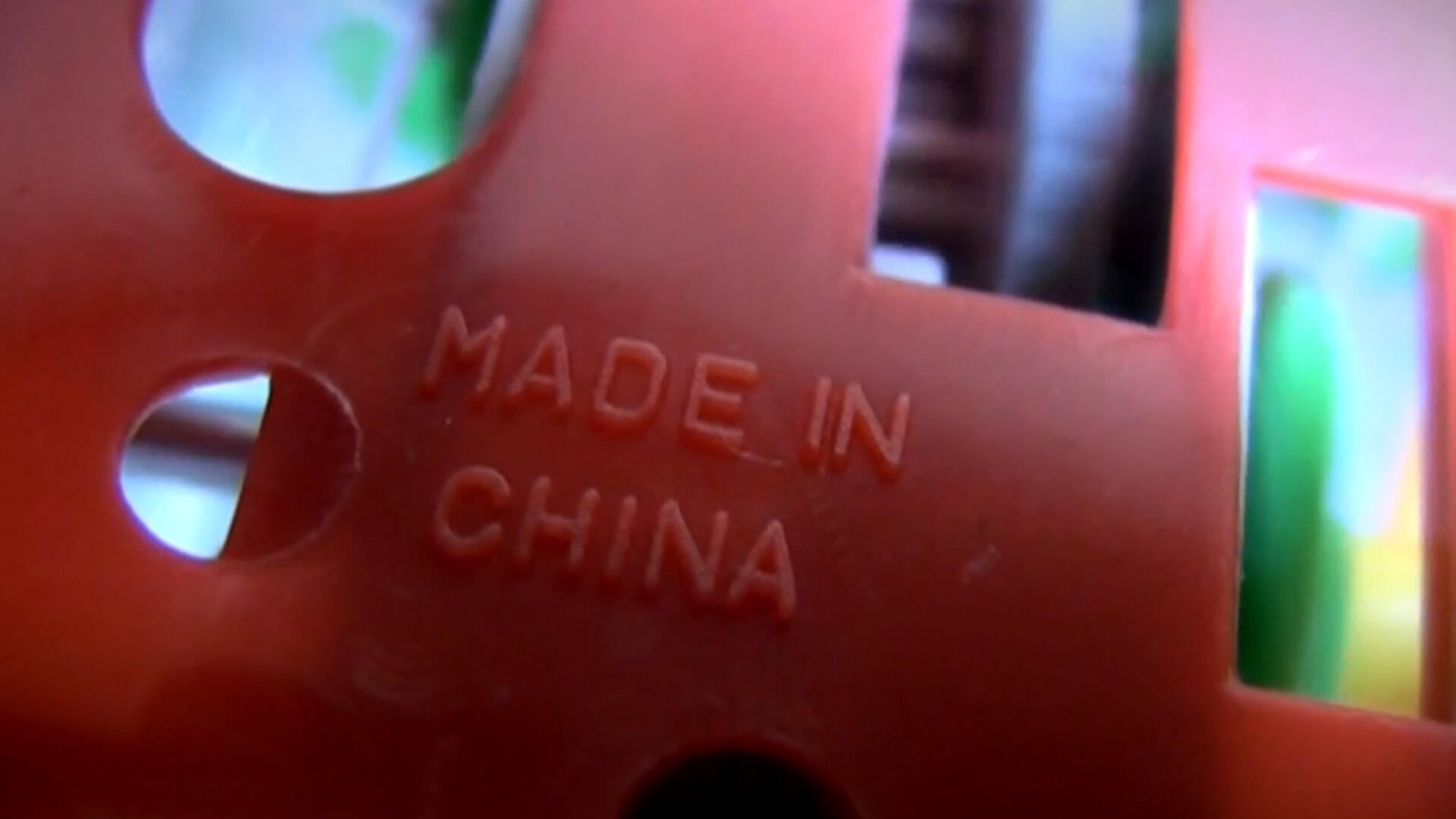Toy companies ask Supreme Court to swiftly take up challenge to Trump's tariffs
Washington — A pair of Illinois-based companies that sell educational toys and products asked the Supreme Court on Tuesday to swiftly take up their challenge to President Trump's sweeping tariffs, arguing that the "massive impact" on businesses and consumers warrants its immediate intervention.
The companies, Learning Resources and hand2mind, urged the justices to decide whether a federal emergency powers law, the International Emergency Economic Powers Act, gives the president the power to impose tariffs. They are asking the Supreme Court to take up their court fight before the U.S. Court of Appeals for the District of Columbia Circuit weighs in and of that request.
The companies have suggested that if the court does decide to take up their case, it should hear arguments on Mr. Trump's authority to impose the levies during either a special September sitting or in October, when the justices will convene for their next term.
"In light of the tariffs' massive impact on virtually every business and consumer across the nation, and the unremitting whiplash caused by the unfettered tariffing power the president claims, challenges to the IEEPA tariffs cannot await the normal appellate process (even on an expedited timeline)," lawyers for Learning Resources and hand2mind wrote in a .
Rick Woldenberg, CEO of Learning Resources, said the cost of the tariffs is "unbearable."
"It's a tax increase, so there's are very substantial separation of powers issues here that need to be addressed," he told CBS News. "The executive branch does not have the power to tax us but they have."
Woldenberg said the tariffs are an "urgent matter" that the Supreme Court needs to address.
The companies' lawsuit is separate from another challenge to Mr. Trump's tariffs that was filed with the U.S. Court of International Trade. In that case, brought by five U.S.-based companies and a group of 12 states, the trade court permanently blocked Mr. Trump's 10% tariff on virtually every U.S. trading partner, as well as his duties on imports from Mexico, Canada and China, which the president had imposed in response to what he said was the trafficking of drugs into the U.S.
The Justice Department asked the U.S. Court of Appeals for the Federal Circuit to review that decision. The Federal Circuit allowed Trump's tariffs to go back into effect while it considers the appeal and scheduled arguments for July 31.
The dispute now before the Supreme Court was brought in federal court in Washington, D.C. The companies argued that neither the Constitution nor IEEPA grants the president the authority to levy tariffs at all. The case specifically involves his 10% baseline tariff on most countries, as well as a 20% tariff on China that Mr. Trump said is in response to the flow of illicit drugs into the U.S.
U.S. District Judge Rudolph Contreras ruled in favor of the firms last month, finding that the emergency powers law "does not authorize the president to impose the tariffs set forth" in his executive orders. His decision, though, was more narrow, as it barred the Trump administration only from collecting any tariff from the two companies. Contreras paused his decision while the Justice Department appealed to the D.C. Circuit.
In their filing with the Supreme Court, the companies reiterated that IEEPA does not give the president unilateral power to set the sweeping tariffs. They said that the two courts that have ruled on the matter — the district court in Washington and the trade court — both declared Mr. Trump's levies unlawful on two different grounds.
But they noted that those injunctions have not been paused pending the appeals.
"Even as these punishing tariffs cause American businesses and consumers to bleed billions of dollars each month, there will be no relief any time soon," lawyers for the firms said.
Mr. Trump's tariffs are a centerpiece of his economic agenda, and he has argued that they are critical to bringing manufacturing jobs back to the U.S. The president has also used the tariffs, and the threat of higher rates, as leverage to force trading partners into negotiations.
Mr. Trump announced his 10% tariffs, as well as a set of now-paused "reciprocal" tariffs, in April on what the White House dubbed "Liberation Day." But soon after, the president halted the reciprocal duties on 57 countries amid rattled financial markets and concerns of an economic downturn.




